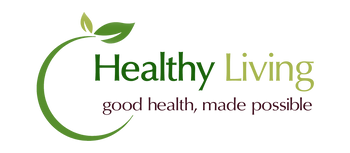Information on Breastfeeding
From A qualified Breastfeeding Counsellor
Angela Cahill is a qualified Breastfeeding Counsellor (BFC) through Cuidiú-Irish Childbirth Trust. Angela facilitates private breastfeeding preparation classes for expectant parents at the Healthy Living Centre, Athy, and also provides telephone counselling and runs a breastfeeding support group on a voluntary basis in the CDP, Athy.

- So lets start by introducing yourself?
My name is Angela and I am a wife and mother to a couple of wonderful children.
- When did you started your journey as breastfeeding consultant?
The initial BFC training takes place over a 2 year period, and once qualified continued education is essential to ensure BFCs are kept up-to-date with current best practice. I started facilitating a weekly breastfeeding support group in Athy in June 2011 which still runs on a weekly basis in conjunction with our local Public Health Nurses (PHNs).
- Why did you chose to become a BFC?
Through recognising the fact that accurate support and information was key to successful breastfeeding and the shortage of breastfeeding support options available in Athy (apart from the service provided by our wonderful PHNs of course).
- How did you decided to run breastfeeding support group and preparation classes?
From my experience in my role as a BFC and from the feedback received from parents, I discovered that many mothers wished they had known more about what to expect in relation to breastfeeding and normal newborn behaviour prior to the birth of their babies. So, in order to try and bridge that gap, I decided to facilitate breastfeeding preparation classes for expectant parents which commenced in Feb 2013 at the Healthy Living Centre in Athy. So far the feedback and outcome has been extremely positive.
I love the fact that I can be there to support parents from bump to beyond. I really enjoying doing what I do on both a voluntary basis and through the private classes. When the baby arrives I am here for parents by phone and in person at our weekly breastfeeding support group.
- What are the benefits of breastfeeding your baby?
As breastfeeding is the biological norm for human infants, there are no benefits as such. Not breastfeeding increases the risk of certain allergies and illness in both mother and child.
- What do you tell a first time mother about how long and how often to breastfeed?
How long is entirely up to the individual mother and baby, but if looking for guidelines, the HSE follows the WHO/UNICEF recommendation of exclusive breastfeeding for 6 months and alongside solids for 2 years or beyond. In terms of 'how often', under normal circumstances we would encourage mothers to follow their babies lead and feed on cue and not by the clock.
- How do you feel about people who don't breastfeed?
I don't feel anything, it has nothing to do with me. Cuidiú as an organisation supports all parents no matter who they feed their babies. In my role as a BFC I provide information and support parents individual choices, whatever they may be.
- What type of bad advice women do tend to get?
A combination of misinformation and breastfeeding myths can be quite common, some common myths include:
- "it is normal for breastfeeding to be painful" (it shouldn't be!),
- "baby should only feed 'x' amount of times for 'x' amount of minutes"
- "you'll spoil that baby by holding it too much" (it's impossible to spoil a baby by simply meeting its needs)
- Does breastfeeding impact negatively on day to day life?
It shouldn't. If anything breastfeeding should bring you freedom, as breastfed babies are very portable. You can dash off, armed only with a few nappies, never have to worry about running out of supplies, making up or heating bottles, sterilising, or worrying if the water is safe. Human milk is economical, always sterile, always the right temperature and always 'on tap' - once established, it is the easier 'option'.
- Is there anything that could encourage women to breastfeed more?
Having a good support network in place and access to evidence based information enables a mother to make informed decisions around infant feeding. It is important for breastfeeding to be promoted positively and as the normal way to feed a baby - not the 'best' way.
- Do you have any suggestions on how to do that?
A good place to start is with education - for parents and health care providers and society as a whole. Having the resources in place is vital to implement any plan or change. See Breastfeeding in Ireland: a Five Year Strategic Action Plan for more information on this subject (link below)
How important is breastfeeding support in today's society?
Although breastfeeding is the biological norm, it is no longer the cultural norm. We've lost the art of breastfeeding. So, therefore having accurate information and a good support network is key to successful breastfeeding.
- There are many online sites and mothering groups to seek advice if requires, how you are different?
Part of the role of a Breastfeeding Counsellor is to provide evidence based information, we must keep up-to-date with current best practice. A BFC doesn't advise a mother to do anything, but instead provides evidence based information, thus providing her with the tools to make an informed decision, whatever that decision may be.
- There are so many posters and leaflets about "Breast is Best" and explaining the downfalls of formula milk. There are also many charities that promote breast milk, so why do you think that women and medical staff still over use formula?
A number of reasons, as I mentioned earlier as a culture we've lost the art of breastfeeding. So if a mother experiences initial difficulties with breastfeeding, many well meaning individuals who may not understand how breastfeeding works often suggest 'an alternative' to breastfeeding rather than a breastfeeding solution. It can be hard to support something you don't understand. Also, as breastfeeding is the biological norm we should not market it as being 'best', 'better' or 'ideal', it's simply 'the normal way to feed a baby.'
We need to stop putting breastfeeding on a pedestal. It creates a divide between parents who breastfeed and parents who don't, there should be no divide.
- From my own experience I know it is so easy to give up, especially at the early stage, so how long do you think women should try before looking for other options?
Ideally, having the information before baby arrives can really help - knowing what to expect in the early days in terms of what is normal and what is not can make a huge difference. Hence one of the reasons as to why I started facilitating breastfeeding preparation classes. If a mother is experiencing any kind of breastfeeding difficulties or has a query or concern, I would suggest she calls someone who is trained in breastfeeding management to help straight away (Cuidiú BFC, LLL Leader or IBCLC). Cuidiú provide a voluntary telephone support service which is available to all mothers countrywide.
- Some mothers do have issues on latching process, or have to get back to work very early, would you recommend expressing milk?
It depends on the circumstances. For example if a mother is experiencing difficulties with positioning and attaching the baby at the breast, we need to know the back story, get to the route of the cause as to why the issues are there. In some cases it may be a simple case of tweaking positioning and attachment or there might be something more complex going on, so really it depends on the individual circumstances. If necessary (or if it's the mothers choice for whatever reason) we would support the mother to express her milk in order to establish her milk supply, with a view to then transitioning baby to the breast when the time is right (should the mother choose to, some mothers may choose to exclusively pump).
Regarding expressing and returning to work, again it depends on individual circumstances, such as when the mother returns to work, if the baby has started solids, and how long mother and baby are going to be separated. If prior to 6 months, mothers are entitled to pumping breaks or if the mother is a civil servant she is entitled to pumping breaks for up to 2 years. A BFC will provide information on all options available and support the mother in what she decides will work for her and her baby in her individual circumstances. For more information see: http://www.cuidiu.ie/supports_breastfeeding_returningtowork
What other support options are available in Ireland or/ and locally?
Some of the options include:
- La Leche League of Ireland (Monthly meetings facilitated by an accredited LLL Leader plus telephone support)
- Friends of Breastfeeding (mum to mum / peer support via breastfeeding buddies)
- Association of Lactation Consultants Ireland (lists both hospital based and IBCLCs in private practice)
- HSE website breastfeeding.ie (list of breastfeeding support groups county by county)
- Breastfeeding in Ireland: a Five Year Strategic Action Plan: http://www.breastfeeding.ie/policy_strategy
Thanks for all the information Angela, is there anything else you wish to add?
If you are pregnant and considering breastfeeding, get the information before baby arrives. You can do this by attending a breastfeeding preparation class (hospital or independent or both!), and also by popping along to your local breastfeeding support group (or better again, attend both a class/classes and a group!) Build your support network and remember knowledge is power!!!
Angela is also in the process of certifying as a Birth Know-How Doula (FEDANT) and Childbirth Educator (Childbirth International CBI).
For more information or to book a class you can email Angela at: angela.cuidiu@gmail.com or phone : 086-8260829.





















